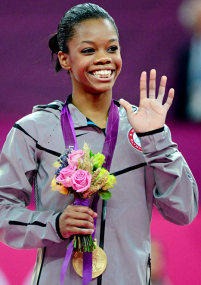I have been looking into global warming a bit lately. It was spawned by the random act of checking out "What's the Worst that Could Happen?" by Greg Craven. He is not an expert, but he plays one in the high school science classes he teaches. He wrote this book to help people think more objectively about, not who is right and wrong, but whether we should take action or not. He is obviously under the opinion that taking massive action immediately is the right way to go. I didn't find his book particularly helpful, but I would agree with one of his thoughts. The truth about what global warming is, how it works, and most of all what it will do to us in the future is not nearly as important as the actions we take or don't take. What I mean is that finding an alternative to using gas in cars is a good thing no matter why you are doing it. Trying to watch and clean what our power plants are spewing into the atmosphere can only be good, and looking into a variety of types of power sources can only be better for our future. Freaking out and rushing changes onto the likely causes of CO2 emissions may do more harm than good if our alternatives use more energy, or loads of money.
My first reaction to the whole thing is a natural skepticism. There is money on one side and politics on the other, neither of which I trust, and in some instances those are both on both sides. I also find myself a bit at odds with some environmentalists. I know they mean well most of the time, but my natural bent is to help people, not plants. In this case they would probably say that planting more trees would help us all. From the little research I have done it looks like what would help the most is if everyone in the world would give up their cars, and electricity, and even then it would only be about half of the cut in CO2 we would need to return to pre-warming temperatures. I am not ready pretend the industrial revolution never happened and return to pioneer days yet.
There are many things about this issue that are very tricky. I have heard that the best way to actively push for the measures we need to combat future global warming is to lobby governent. The slow, plodding, bipartisan government. I know that most of the government is aware of the environmental lobby, and reacts to them when it needs to to maintain their votes, but I worry about the reliability of the outcome. And I personally am not a big fan of bigger government. Ok, so let's take global warming to the personal level. What can I do other than vote and annoy my congress person? It seems that it is hard to move in the right direction without moving in the wrong direction in another area, very likely canceling out the good I did. Like maybe I grow a good bit of my own food, therefore lowering CO2 that would have come from the trucks delivering vegetables to the grocery store, but then I own an SUV. Or maybe I try my best to eat organic, and not eat meat, to help eliminate methane and such, but then I love to take long trips to cool destinations in my car. And then there is me. I try to buy local at the farmers market, which helps reduce CO2 emissions from long deliveries, and I use florescent bulbs, but I shop at Walmart and use plastic bags and disposable diapers. I am sure not helping things. I do try to re-use my Walmart bags for other things, but that really isn't an excuse. I do adopt children rather than put more people on the earth, but I did up the population by three personally. I just can't win. So if all of us are doing things like composting, but yet driving an old car that doesn't have very modern exhaust upgrades, how much are any of us going to help? It sure doesn't seem like it will amount to much, and I think a lot of people who know alot about climate change agree. That is why we come back to government, because power companies aren't going to fix themselves, right. Lately I have been rather scared by the realization of how much the government actually funds in this country. Almost all of science can trace at least part of it's money back to the government, (which, again, I don't trust). So where does that leave us. It seems to me that we have a tangled web that is extremely hard to navigate, and vulnerable to the whim of popular opinion.
So what about global warming. It does seem to be warming. Are we causing it. Possibly, probably, in part, who knows. I don't. I think we know too little about the long history of the earth to truly be able to fathom what is going on here. What should we do? What we have been doing. Let's try to pollute less. Let's try to make the energy we use more efficient, and develop cleaner sources of it. Let's think outside of the box. I like the oddball ideas I have read about like capturing this excess carbon in the atmosphere and re-useing it for energy. I even read an idea that involved deploying giant mirrors into orbit to deflect some heat from the sun. Sure, these ideas may be crazy and may not work, but they may lead us to ideas and ways of thinking that will. Let's not get hung up on specifics, and not get caught up in angry debates. there are a lot of things that neither side knows for sure. But I think we know enough to be grateful for what we have, and know that we can't just coast along doing whatever we want to our planet and think things will always be fine. I for one will probably keep buying local, and then turning around and buying Walmart. I will vote for the guy that I think represents my views on most issues in general, but I probably won't annoy him for much. Maybe a midwife issue here, an adoption issue there. Things that affect my immediate family, just like most people. I won't give up my car, but I will try not to make extra trips, or long trips if I don't feel I have to. Will government and power companies and car companies do what I need them to do with out my hand at their wheel? I don't know. I don't even know exactly what I would ask them for if I could, because I don't know the difficulties behind making less polluting cars work, and then making them at a price I am willing to pay. Though I would be happy to buy an environmentally friendly mini-van if I could afford it next time. I will just send out my hope, that if we are contributing we can figure out what we can do to help before it is too late. The other thing I realize is that the world was not specifically made to accommodate me. There very likely could come a catastrophe to humans that we didn't cause, or didn't cause completely. We have been very lucky up until this point. The earth has been through many time periods that would not have been so comfortable for us, and may go through more. There is no law saying the universe must be nice to us, unless there is, and that would lead to an entirely different understanding of the universe to debate.
 This is one of my latest reads. The book was ok. I would have preferred more solutions and less setting the stage, but I found some perspectives that interested me and added my take on the topics below.
This is one of my latest reads. The book was ok. I would have preferred more solutions and less setting the stage, but I found some perspectives that interested me and added my take on the topics below. 


 In her book, Our Babies, Ourselves, Meredith Small drives home how unique Western culture, American culture especially, is in the independance it demands from infants. Being the anthropologist she is there are many stories about how infants are treated in other types of cultures and societies from the present day hunter-gatherer to the urban Japanese household. Most of these cultures are more baby centric than the hospital delivery intervention promoting, daycare loving culture America encourages for the most part.
In her book, Our Babies, Ourselves, Meredith Small drives home how unique Western culture, American culture especially, is in the independance it demands from infants. Being the anthropologist she is there are many stories about how infants are treated in other types of cultures and societies from the present day hunter-gatherer to the urban Japanese household. Most of these cultures are more baby centric than the hospital delivery intervention promoting, daycare loving culture America encourages for the most part. 


























